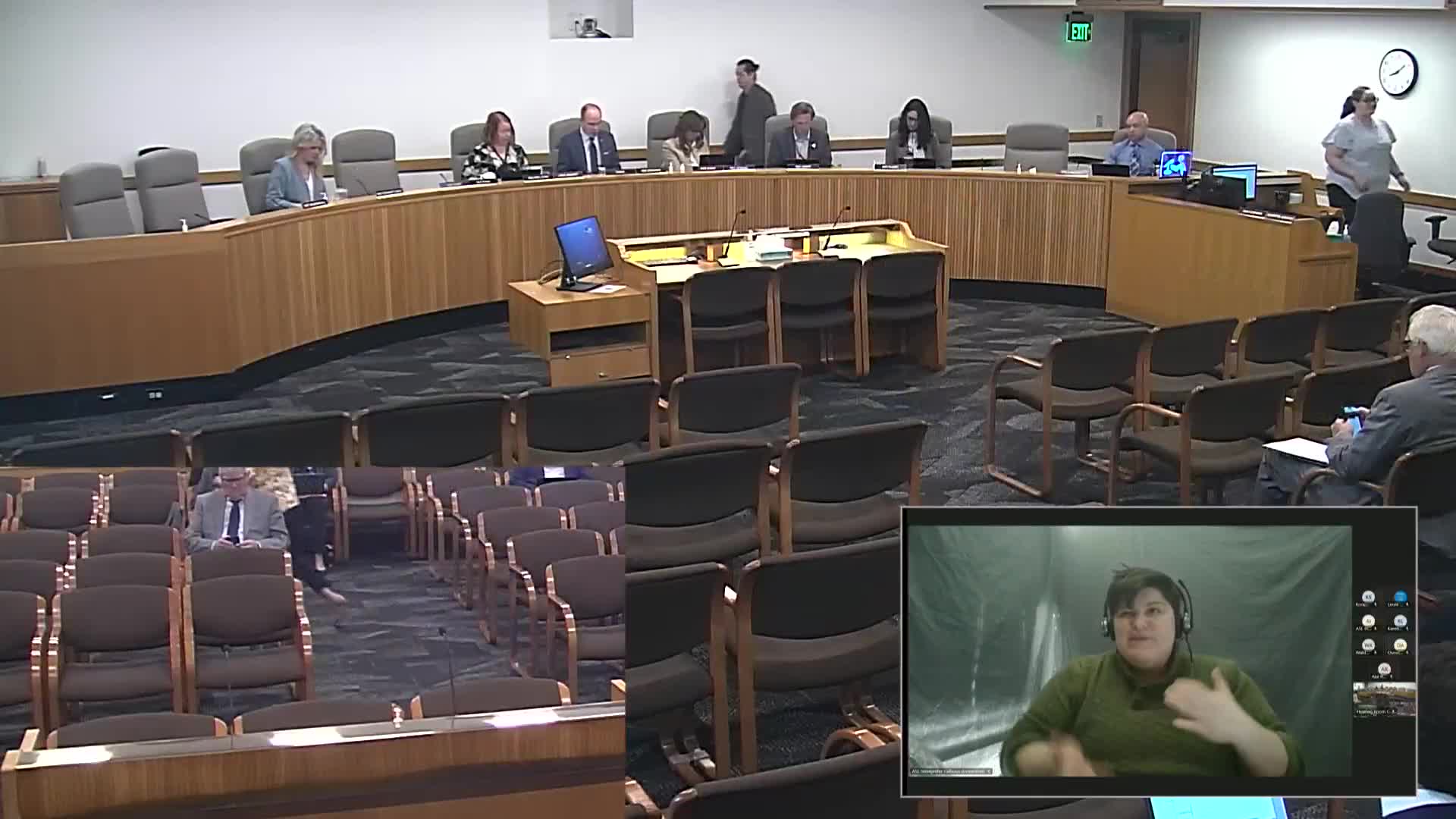Oregon committee hears testimony on bill to require landlords to test rental well water in groundwater management areas
Get AI-powered insights, summaries, and transcripts
Subscribe
Summary
Rep. Vanessa Hartman (D) told the House Committee on Rules on April 30 that House Bill 3525A would require landlords in designated groundwater management areas who rely on exempt domestic wells to test drinking water for arsenic, E. coli, nitrates and lead, disclose results to tenants and forward results to the Oregon Health Authority.
Rep. Vanessa Hartman (D), sponsor of House Bill 3525A, told the House Committee on Rules on April 30 that the measure would require landlords of certain rental units that rely on exempt domestic wells to collect drinking-water samples, test for specified contaminants, disclose results to tenants and forward results to the Oregon Health Authority (OHA).
The bill narrowed in scope from earlier versions: it applies only to dwelling units that rely on exempt wells and are located within designated groundwater management areas under the dash A amendments, and it moves the bill's operative date from June 1, 2026, to June 1, 2027. The engrossed bill would require sampling for arsenic, E. coli, nitrate and lead; if results are below EPA maximum contaminant levels (MCLs) testing would be every four years, and annually if results exceed limits. The dash 10 A amendment further changes the deadline for landlords to provide test results to tenants from “no less than 30 days” after landlords receive them to “within 30 days.”
Supporters including Roselyn Poten, water justice coordinator at Verdi, and Kim McCarty, executive director of Community Alliance of Tenants, urged passage at the public hearing, saying renters often lack information and face vulnerability when they rely on private wells. Poten said the measure “opens a path for renters to know if their water is safe to drink and to make informed decisions that protect their health,” and McCarty said the bill would provide transparency renters need to protect children and other vulnerable household members.
Oregon Health Authority staff described the public-health rationale without taking a formal position. Andre Uso, administrator of the Public Health Division at OHA, explained that while public water systems are regulated and regularly tested, private domestic wells are not regulated and well owners currently are responsible for testing and treatment. Uso outlined health risks associated with the four contaminants the bill targets, noting particular sensitivity for infants and pregnant people and the potential for both acute and long-term harms.
Researchers and community advocates, including Dr. Alejandra Santos, described interviews with renters who said they feared asking landlords for testing because they might lose housing or otherwise face consequences. Dr. Santos said some tenants spend scarce resources on bottled water because they do not know whether their well water is safe. Testimony from Karen Lewatsky of Oregon Environmental Council and others emphasized that rental properties served by domestic wells are frequently rural and often house low-income or otherwise marginalized residents.
Industry and agricultural groups, represented by Katie Murray of Oregonians for Food and Shelter and Lauren Kinsey of the Oregon Farm Bureau, said they support safe drinking water but raised concerns about how state agencies might use the data and about data quality and privacy when private lab results are reported to state systems. They urged safeguards on secondary uses of the data and noted the need for resources to address remediation when exceedances are found. Hartman and her staff said the bill in its narrowed form does not require treatment or repairs and that prior versions that imposed mandatory repairs and private causes of action were removed.
Committee members asked about costs and enforcement. Hartman's chief of staff, Daniel Moolke, and OHA staff said the dash 10 A amendment delays the operative date to 2027 to give OHA and labs time to prepare and that OHA's work in groundwater management areas makes the bill complementary to existing programs. Testimony estimated a single private well test can range from about $150 to several hundred dollars, and witnesses said that burden falls unevenly now and drives the rationale for a landlord-based requirement in affected areas.
The committee closed the public hearing on House Bill 3525A and moved to other agenda items; no committee vote on the bill occurred in Rules during this meeting.
The bill remains under consideration with key issues identified: the geographic limit to groundwater management areas, timelines and capacity for OHA and laboratories, potential downstream costs to landlords and tenants if repairs are required, and protections for how the state may use lab-reported data.
